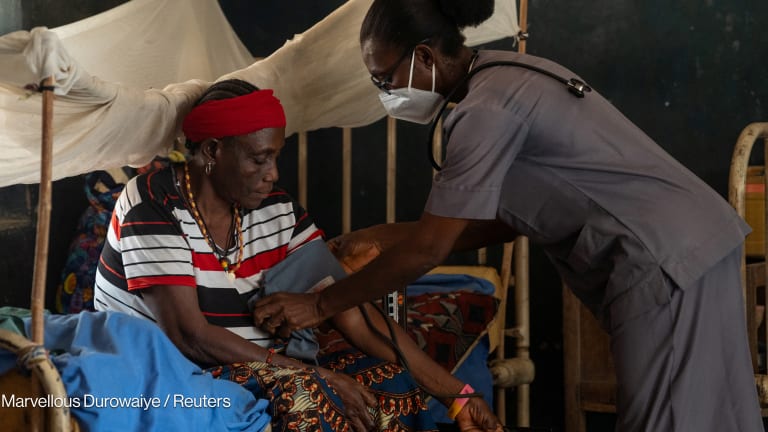
Nongovernmental organizations seeking aid funds from the Italian government may face new rules this year.
In the past, NGOs would need to submit proposals to the Italian government and the latter would approve financial support. In the near future, they will have to respond to calls for proposals which will focus on certain sectors or themes, Giampaolo Cantini, the newly appointed chief of Italy’s Directorate-General for Development Cooperation, or DGCS, told Devex.
The plan, at present, is to issue a call once a year.
“Maybe in the future, twice,” Cantini said. “We’ll see.”
In this second part of our interview with Cantini, the veteran public servant talked about how his organization plans to enhance cooperation with NGOs and the private sector.
Do you envision increased involvement of the private sector in Italian development cooperation?
I wanted to establish a point of connection with the organization [Confindustria] that represents Italian private companies [and inform them] about the Italian cooperation programs in which private companies can be involved.
Italian companies didn’t know enough the opportunities offered by the programs on debt conversion, by loans or commodity aid. We are talking about big programs in Egypt, Lebanon, Pakistan … [In case of the debt conversion] we [can] talk about Myanmar, hopefully Vietnam, Peru, in the future Indonesia, which are dynamic realities.
We intend to do [the same] at the local level in collaboration with enterprises … We want to present the countries, such as Tunisia, Egypt, Pakistan, Vietnam, Perù, to make Italian enterprises aware about those opportunities. …
It seems to me that we do not have a great tradition in Italy [but] some groups have developed a greater sensitivity to the nonprofit sector and implemented important projects. What has lacked until now it has been the collaboration among the institutions, NGOs, regions and those big groups. It’s a sector that has to be developed.
Do not forget that the law No. 49 — and that’s true also for the reform proposals discussed in parliament — puts at the enterprises’ disposal some instruments that support joint ventures in developing countries.
NGOs have complained about highly bureaucratic procedures to participate in the Italian cooperation program. How are you addressing this concern?
We are developing an increasingly closer dialogue on big themes and on some specific countries. That’s the idea of exchanging views and coordinating the work, [with a] strategic approach.
There exist some [formal] forums and some more informal working groups for specific country situations. Also because frankly, when we talk about Mali, for instance, we ourselves have very limited knowledge [of the situation], we do not have an embassy, but only an honorary consul etc . NGOs that work in Mali are very few, but those few have an experience on the ground that is very useful.
The second element is an innovation that was launched very recently, at the December DGCS board, which is the assignment of the projects through a European-style call.
Will those calls be open only to NGOs or also to private companies?
Those are for eligible NGOs.
[The new system] will give also more coherence [to our action] and we will operate more and more in compliance with the criteria outlined in the guidelines: priority countries, big themes in accordance with the international agenda, Millennium Development Goals, the post-2105 agenda that is being defined. We aim at achieving a greater coherence also in our partnership with the NGOs.
In August, the Court of Auditors published a report highlighting serious irregularities and inefficiencies in the projects implemented by the NGOs. How are you planning to better monitor NGO operations?
[The new system will address also this issue]. Often NGOs, sometimes also some local authorities, complain about the bureaucratization of the procedures. Everything revolves around a fundamental issue that is reporting.
The reporting system is fundamental every time the government disburses funds. What is sometimes passed off as bureaucratization, it is simply the application of the law. [DGCS has to] comply with the law.
Well-equipped NGOs, which know the system, with experience, do not have problems. As soon as they present their reports, which are evaluated, they receive the funds. We have NGOs that continue to complain … We would very happy to disburse the resources, which have been allocated to them, but until we do not have reports that follow a specific methodology, we cannot disburse the funds.
Read the first part of our interview with Cantini, where he discusses new strategies to improve coordination of aid programs and his suggestions for reforming the existing law on development cooperation.








